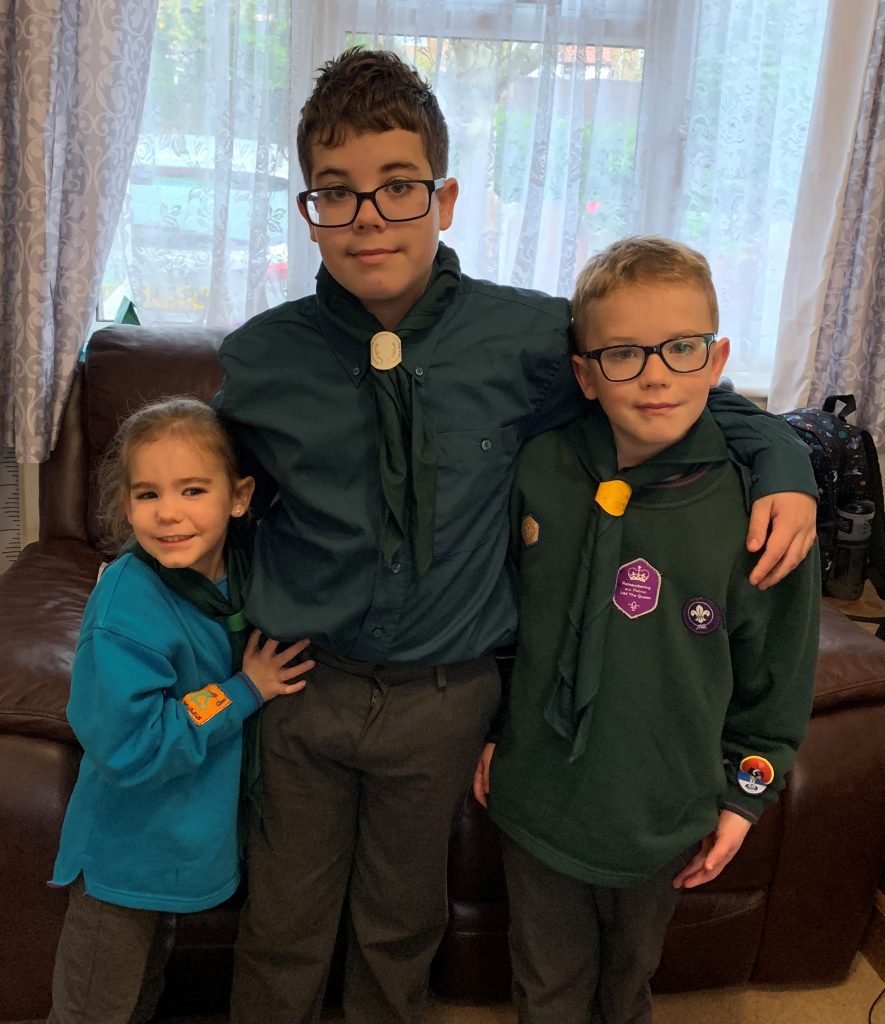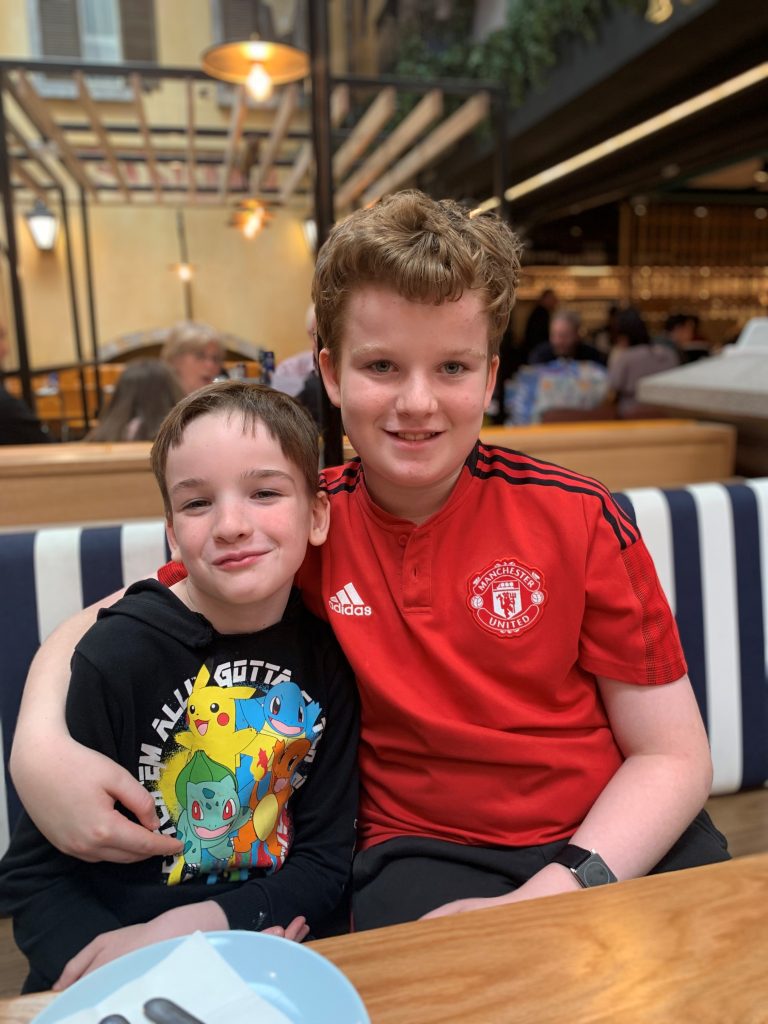Questions and answers
-
What is epilepsy?
Epilepsy is a condition that affects your brain.
Your brain cells work by sending electrical messages to each other. It’s like your own, powerful computer, controlling everything you do. When your brain starts sending too many electrical messages, it causes something called a seizure. You might also hear it called a fit or an attack.
If someone has epilepsy, it means they’ve had at least one seizure. They might keep getting seizures, or doctors think that there’s a high chance they’ll have another one.
Epilepsy is a bit different for everyone. Your brother or sister may be able to tell you how it feels when they have a seizure. Some people fall to the floor and jerk their body when they have a seizure. Others just go a bit blank, like they’re not listening or paying attention. Some people have lots of seizures, every day. Others might only have them every now and then.
If your brother or sister takes epilepsy medicine, it might stop all of their seizures.
Around 1 in 200 children and young people in the UK have epilepsy. So there may well be other children in your school who have it, or who have a brother or sister with epilepsy.
-
Why does my brother or sister have epilepsy?
Doctors can only sometimes tell why someone has epilepsy. It could be because:
- It runs in the family – one of their parents might have epilepsy too
- They were born with differences in how their brain works
- They had a serious infection when they were a baby
- They have other health conditions which cause epilepsy
- They have had an injury to their head, which damaged their brain
Epilepsy isn’t contagious – you can’t catch it from anyone. A lot of the time, doctors don’t know why someone gets epilepsy. It certainly isn’t because of anything that the person has or hasn’t done. In fact, thousands of people in the country and millions of people around the world have epilepsy.
-
Will they get better?
When someone’s told they have epilepsy, they usually need to start taking epilepsy medicine. Sometimes they may have to try a few different medicines before they get the right one for them.
Some children can have an operation to help control their epilepsy. And some children go on a special diet to try and stop their seizures.
Some children grow out of their epilepsy as they get older. When this happens, they may be able to stop taking their epilepsy medicine. Other people may have to carry on taking medicine to make sure their seizures don’t come back.
-
Is epilepsy dangerous?
It can be really frightening to see your brother or sister having a seizure. But as long as they are somewhere safe, it won’t usually hurt them. In fact, many people who have seizures don’t even remember it afterwards!
One of the tricky things about epilepsy is that nobody knows when a person might have another seizure.
This means it’s really important that the people close to them help to keep them safe. There are some things that could be dangerous when someone’s having seizures. These include things like climbing very high, swimming and having a bath. Your brother or sister may not be able to do these things unless someone is closely watching them. There are other things where they may need to be a bit more careful too, like riding a bike.
There are still plenty of things that your brother or sister will be able to do safely. And lots of ways to have fun together!
-
Is my brother or sister different now they have epilepsy?
No, your brother or sister is just the same person as they were before they found out they had epilepsy.
How they feel about having epilepsy might make them act differently for a while. And some people, like parents, teachers or classmates may treat them a bit differently too. They might worry about what to do if your brother or sister has a seizure, and the best way to keep them safe.
Even you might treat your brother or sister differently at first. This is probably because you don’t know very much about epilepsy and how it will affect them. Once you get used to them having epilepsy, you’ll see they are just the same person as before.
-
What should I do if my brother or sister has a seizure?
If your brother or sister has a seizure, they may fall to the floor. You should call for an adult to help as quickly as you can. If you can’t find an adult straight away, here are some things you can do.
Do:
- Keep as calm as you can
- Put something soft under their head, like a pillow, cushion or coat
- When they stop moving around, roll them gently onto their side, if that’s easy for you to do. This can help them to breathe
- Find an adult as soon as you can
Don’t:
- Put anything in their mouth
- Give them anything to eat or drink
- Try to hold them down or stop them from moving
View our story, Spike and me to find out how to help someone with epilepsy.
As a family, you could write a plan about what to do when someone has a seizure, and put it somewhere everyone can easily reach.
Practise what you need to do if your brother or sister has a seizure too. This will help you to feel more confident about it.
-
Is it normal to feel angry, worried or sad about my sibling?
Yes, it’s completely normal to have lots of different feelings if your brother or sister has epilepsy.
You may feel:
- Frightened when they have a seizure
- Worried that they are going to have a seizure, and how you might help them
- Sad or even angry that they have epilepsy
- Fed up that they are getting more attention from your parents
- Ashamed about their condition, and embarrassed to tell your friends
A lot of people have these feelings when they don’t understand the condition very well. As you get used to how your brother’s or sister’s epilepsy affects them, these feelings may pass.
Learning more about epilepsy will help too. If you want to learn even more you can read the answers to our Big Questions.
It’s important to talk to someone about your feelings. This might be:
- A parent or carer
- Other sisters or brothers
- A grandparent, aunt or uncle
- Your teacher
- Your friends
- A friend’s mum or dad
Often just talking things over with someone can help you feel better.
-
What can I do if I feel angry?
You may feel:
- It’s not fair that your brother or sister has epilepsy
- It’s not fair that they get more attention than you do
- It’s not fair that a plan has to change because your brother or sister has had a seizure
It‘s OK to have these thoughts and feelings. But it’s how you deal with them that matters. When you feel angry, you could try:
- Counting to 10
- Doing some deep, slow breathing
- Going to a place (like your bedroom) to calm down
- Writing down how you feel on a piece of paper – you could always rip it up afterwards
- Burning off some energy – doing some jumping jacks, kicking a ball around or jumping on a trampoline
- Talking to someone you trust about how you’re feeling
If you’re feeling angry a lot, try and find an adult you can talk to. They may be able to help you deal with the situation.
-
How can I help my brother or sister?
Children with epilepsy need lots of help and support from their family. Brothers and sisters often play a big part in this. Here are some of the way brothers and sisters might help. You might:
- Look after brother or sister when your parents can’t be there
- Be the one to notice if your brother or sister is having a seizure, and tell an adult
- Help your parents in looking after your brother or sister when they have a seizure
- Encourage your brother or sister to stick to their epilepsy medicines or diet, if they’re on one
- Help your brother or sister lead as normal a life as possible, by doing different activities and having fun together
All of these things can be really helpful. But feeling responsible for someone can be stressful. You might feel worried about looking after your brother or sister. Or you might think you’re having to look after them too much. If this is you, talk to your parent or another adult you trust. They might not realise how it’s making you feel.
Children who help out a lot with caring for a brother, sister or other relative are sometimes called young carers. You might really want to help with caring for your brother or sister, and that’s great. But caring for someone shouldn’t get in the way of other things, like homework, seeing friends or just having time for yourself. Being a young carer is your choice.
The Children’s Society have information and support for young carers.
-
Is there a group that can help me?
If you look after your brother or sister a lot, there are some groups you can get help from.
For people who have a brother or sister with a disability or long-term health condition. They have lots of information and advice. You can also talk to an advisor.
This organisation offers support to young people who have to spend a lot of time looking after a brother or sister.
The Carers Trust supports all carers, including young carers, across the UK. They offer information, advice and various support services.
Call Childline any time you want to talk to someone about how you’re feeling, especially if you’re worried about something. The number is 0800 1111. It doesn’t cost anything.
Just for kids
Find out more about epilepsy in our page for children.
You’ll find stories, videos and much more to help you understand all about epilepsy.







